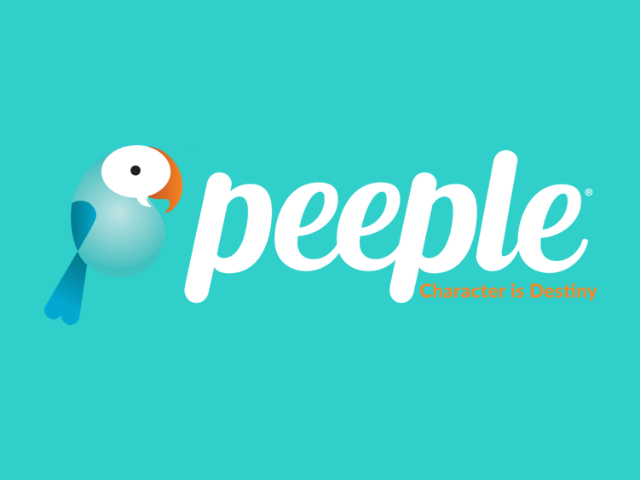Have you found that a social media post you commented on– Facebook, Ello, Tumblr, YouTube and the like – suddenly drew more attention to itself than you expected? Have you ever been told off for what you thought was a perfectly innocuous comment? Have you ever found yourself wondering exactly why something you said has sparked off so much debate? (“How can you say that? Children are dying in Africa and you’re just here complaining about *insert generic complaint*”)
If this resonated with you, then you’re one among several hundreds of thousands of people who have, in the last year or so, been exposed to the wrath of what the Internet is calling ‘Social Justice Warriors’. For the remainder of this post, let’s refer to them as SJWs. SJWs are anonymous keyboard soldiers, holding innocent commenters to (unreasonably) high standards of political correctness.
Several celebrities, sportsmen and average users have been vilified by SJWs, for using social media for the exact thing it was meant to be used for – voicing opinions. This begs the question – has ‘political correctness (P.C. to millenials) become a thorn in the side of free speech? Is it secretly thwarting the very thing that social media was made for? We take two examples to find out.
1. Peeple
 Nicolle McCullough and Julia Cordray, two residents of Canada, are the people behind Peeple. The idea came to Nicole McCullough, mother of two, when she was looking for a babysitter for her children. She decided to create a forum that would essentially help people understand how trustworthy strangers were. This idea then grew, and the Peeple website now proclaims that the “app allows you to better choose who you hire, do business with, date, become your neighbors, roommates, landlords/tenants, and watch, teach, and care for your children. There are endless reasons as to why we would want this reference check for the people around us.”
Nicolle McCullough and Julia Cordray, two residents of Canada, are the people behind Peeple. The idea came to Nicole McCullough, mother of two, when she was looking for a babysitter for her children. She decided to create a forum that would essentially help people understand how trustworthy strangers were. This idea then grew, and the Peeple website now proclaims that the “app allows you to better choose who you hire, do business with, date, become your neighbors, roommates, landlords/tenants, and watch, teach, and care for your children. There are endless reasons as to why we would want this reference check for the people around us.”
When the app was announced in 2015, the digital world went berserk. The app was announced as a place where people could rate other people, a-la-Yelp. This was seen by most as an instant invitation to cyber bullies and trolls, and everyone on the Internet was unanimous in their understanding that Peeple could be a potentially dangerous app.
A number of people came together, signed petitions to ensure that the app never made it to deployment, and the founders even received death threats. Basically, just about everyone was incensed by the idea of one human being rating another. USA Today proclaimed it “A new low for online comments.”
When the app came out, it was vastly different from what the owners had originally described. Here are a few changes that were made to the app:
- The app was originally supposed to offer star-based ratings, with one star being the lowest, and five the highest. This was changed to an option-based model, with three options – Positive, Neutral and Negative. People can be rated on three fronts: Professional, Personal and Dating.
- The app was originally supposed to allow users to rate everyone, irrespective of whether they were using the app or not. Now, the app is available only to opt-in members.
- Originally, negative reviews were to be retained on a person’s profile, and then removed after a year as indicative of people’s capacity to change. Now, however, negative reviews need to be approved by the person being reviewed before they go live.
The PC brigade in this case helped avoid what could have been a disaster for cyber security everywhere. What happens, however, when SJWs take it a little too far?
2. Matt Taylor – The Rosetta Project
 The Rosetta Project was a wonderful undertaking that put a probe on an asteroid. If this sounds like it isn’t a big deal, these statistics will change your mind – The probe travelled a cumulative distance of 4 billion miles, to reach its target. There was a lander – Philae - that was masterfully attached to the moving rock, which was flying along at speeds of about 135,000 miles per hour. Rosetta, the probe, still orbits the asteroid.
The Rosetta Project was a wonderful undertaking that put a probe on an asteroid. If this sounds like it isn’t a big deal, these statistics will change your mind – The probe travelled a cumulative distance of 4 billion miles, to reach its target. There was a lander – Philae - that was masterfully attached to the moving rock, which was flying along at speeds of about 135,000 miles per hour. Rosetta, the probe, still orbits the asteroid.
So, where do the PC soldiers come in, you ask? Dr. Taylor is a bit of an extrovert – he sports several tattoos and has been known to have a wonderful comic sense of timing. It is this extroversion that led to him appearing on national television, wearing a shirt that had bikini-clad women printed on it.
Feminists and SJWs the world over took umbrage, and what followed was a veritable war on Twitter, with several thousand tweets every day denouncing the scientist. In a conference that came over the next few days, Dr. Taylor broke down on television, and offered his unconditional apology for the shirt.
 While the SJWs proclaimed it a success for feminists and political correctness the world over, for the most part it was a shameful incident; overshadowing an immensely significant technological milestone with meaningless outrage. As described in this article, Dr. Taylor’s sister confirms that he sometimes forgets where he’s parked his car – the archetypal ‘absent-minded scientist’. Was it, then, necessary to take him to task for wearing a garish shirt? It was, undoubtedly, not the best sartorial decision for national television, but did he deserve the rage that was directed at him? Decidedly not.
While the SJWs proclaimed it a success for feminists and political correctness the world over, for the most part it was a shameful incident; overshadowing an immensely significant technological milestone with meaningless outrage. As described in this article, Dr. Taylor’s sister confirms that he sometimes forgets where he’s parked his car – the archetypal ‘absent-minded scientist’. Was it, then, necessary to take him to task for wearing a garish shirt? It was, undoubtedly, not the best sartorial decision for national television, but did he deserve the rage that was directed at him? Decidedly not.
Summing up, while political correctness definitely helped humanity in general dodge a bullet when Peeple was forced to release a watered-down version of their app, SJWs sometimes take it too far, blowing the most trivial gestures ridiculously out of proportion. Whether or not political correctness will prove to be the bane of comedy, satire and harmless humor the world over, remains to be seen.

